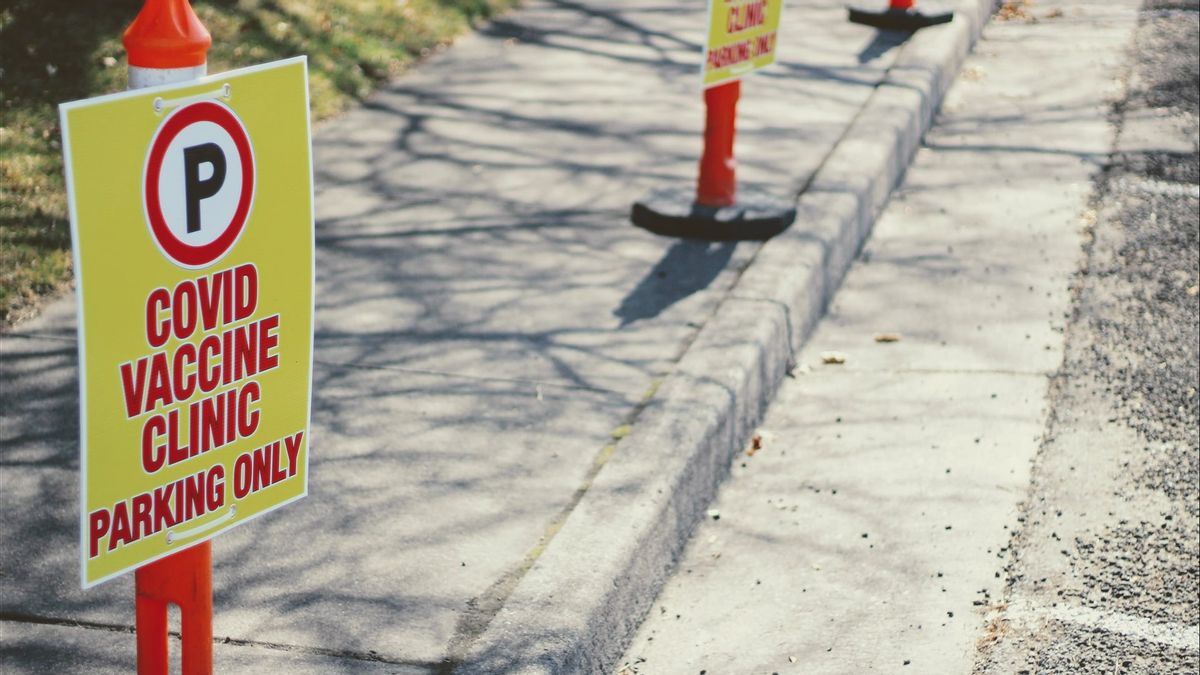JAKARTA - The SMRC survey institute released a public opinion poll regarding the implementation of national vaccination and sentiment regarding COVID-19. As a result, there are still many residents who refuse to be vaccinated, nor do they believe in the existence of COVID-19.
SMRC research director Deni Irvani explained, as many as 29 percent of respondents did not want to be vaccinated. Only 46 percent are determined to be vaccinated, 23 percent are still doubtful or thinking about it first, and 2 percent do not answer this question.
Deni assumed that the proportion of citizens who are likely to receive vaccinations is 61 percent. This figure is compiled from the number of respondents who said they wanted to be vaccinated, thought about it first, and did not answer.
Unfortunately, this figure is still below the government's target of achieving community immunity or herd immunity to overwhelm the COVID-19 pandemic.
"I think this needs to be our common concern, of course. If we link it with the target of reaching 71 percent of the population, this proportion is certainly still less than the target set by the government," said Deni in a survey presentation, Tuesday, March 23.
If you look at the ethnic proportion, the population who do not want to be vaccinated is relatively greater in the number of people with Madurese ethnic background with 58 percent. Then, from the religious side, Muslims who do not want to be vaccinated are bigger by 31 percent.
"Those who do not want to be vaccinated are relatively more residents in areas outside Java, as much as 33 percent. In Java, the largest number of people who do not want to be vaccinated is DKI residents as much as 33 percent," he said.
Furthermore, there are still many residents who do not believe the vaccines provided by the government are safe for health. As a result, 64 percent of residents believe the COVID-19 vaccine provided by the government is safe for the health of its users. There were 25 percent who did not believe it, and 11 percent did not answer.
"We can see together that the attitude towards vaccines has a relationship with the tendency of citizens to want to be vaccinated and not," Deni said in a virtual presentation of the survey, Tuesday, March 23.
Responding to this, an epidemiologist from Airlangga University, Windhu Purnomo, saw herd immunity would not be implemented if only 61 percent of the people who wanted to be vaccinated were vaccinated.
Therefore, the government must increase the trust and compliance of citizens with compliance with the implementation of health protocols.
First, the government must provide continuous education regarding the conditions of the COVID-19 pandemic. However, limited education is not enough. Community leaders to public officials must also set an example.
"There are often no exemplary figures from the figures, from the lower level to the national officials sometimes cannot be used as role models. Hopefully this is realized," said Windhu.
In addition, the enforcement of health protocol compliance rules and restrictions on community activities are also being improved. Plus, with appreciation (reward) for those who obey the rules.
"Law inforcement must be carried out continuously, through rewards and punishments. So, don't just punish. If there is a public place manager who obeys, give rewards," he said.
The English, Chinese, Japanese, Arabic, and French versions are automatically generated by the AI. So there may still be inaccuracies in translating, please always see Indonesian as our main language. (system supported by DigitalSiber.id)













